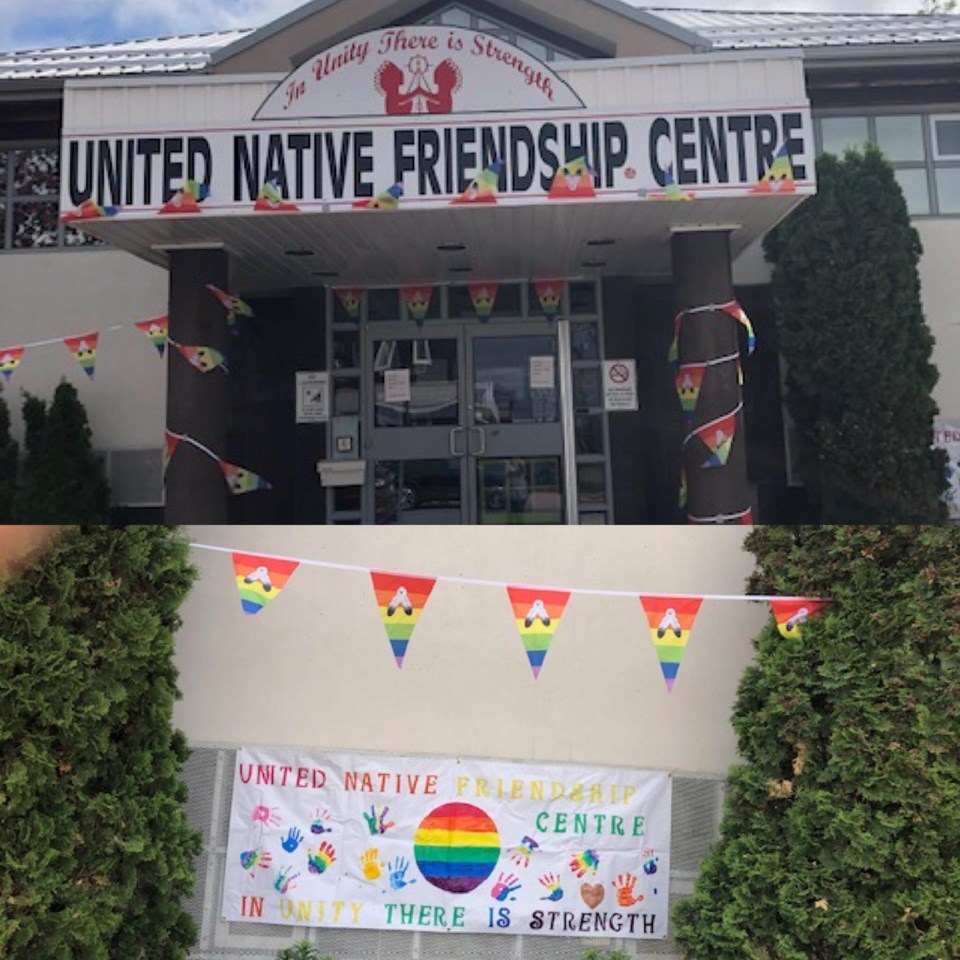FORT FRANCES – The podcast series Restoring Indigenous Humanity highlights the specific injustices Indigenous people face while passing through the Canadian justice system. The United Native Friendship Centre in Fort Frances took part in the series by hosting an intimate interview with the organization’s Combined Court Worker Jessica Desrosiers and Criminal Court Worker Darcy Kavanaugh. In the episode, the two women speak on the topic of intimate partner violence.
Shelia McMahon, Executive Director of the United Native Friendship Centre, goes into some further details about the systematic barriers in Fort Frances. She foregrounds the systematic barriers that Indigenous people come up against while navigating the justice system like the lack of access to court representation, a support system for homeless people, and access to technology used to attend court.
“I know in Fort Frances, especially in the last couple of years with COVID, it’s been extremely hard because the courts were sitting in person,” said McMahon. There just seem to be more barriers put up for people that are going through the court system. It’s made it very hard for people going through the system, especially for people who are going through the system, who don’t understand the system, to begin with.”
McMahon explains that Fort Frances doesn’t have a full-time Judge and the Crown attorneys haven’t been working full-time over the last few years. The United Native Friendship Centre has court workers who assist with the court process, but these assistants aren’t lawyers.
McMahon’s explanation is reflected in the Podcast Restoring Indigenous Humanity episode four where Kavanaugh answers a question that is presented to her about the emotional distress a victim feels when learning that their abuser is out on bail. The barriers here are presented in two ways: the lack of support systems for the victim and the legal language used in court orders.
Another barrier that contributes to the overrepresentation of Indigenous people in the justice system is homelessness, mental health, and addiction. These three issues usually work in tandem with one another. With 10 First Nation communities surrounding Fort Frances, McMahon stated that Fort Frances has seen a 30% increase in Indigenous people moving to the town. The lack of housing in Fort Frances has caused many to become dispossessed.
“Right now, I think a huge barrier is attending court online,” said McMahon. “A lot of our people don’t necessarily have the means. They don’t have the internet.”
Consequently, homeless people don’t have a residency and have no phone or access to email, there is no clear way for the court system to hand them a court date. If they miss their court date, then have another charge compounded on top of the original charge.
McMahon acknowledges that the United Native Friendship Centre is there to support individuals who are wrapped up in the justice system, but that support is limited. The organization’s Count Workers can explain what the justice system expects from these individuals while waiting for trial, but those individuals can’t always meet the conditions laid out by the court.
McMahon explains that a way to break down some of these barriers is to recognize that these barriers exist and it would take all three levels of government to actively push for change. However, it all starts with the community.
“Judges, crown attorneys, myself, and other organizations, would meet to discuss how we can best work together, and I think we really need to get back to that,” said McMahon. That’s important because if we don’t work together as a community, it’s not going to get any better.”
Another way that McMahon suggests could help is listening to the Restoring Indigenous Humanity Podcast. The Fort Frances episode is one particular topic of many systematic problems Indigenous people face with the justice system.
“I really believe with the podcast it’s so important because it will give us the opportunity to bring these issues forward,” said McMahon.
To listen to the Restoring Indigenous Humanity Podcast, click on the link.
